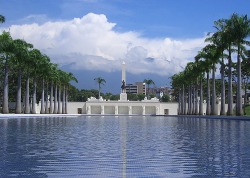¡Un viaje a Venezuela!

Textbook
Ven Conmigo, Level 3
Ch. 3 & 4, Venezuela
Pages 58 - 107
Rationale
There are many important aspects of this unit plan that are essential to Spanish language and culture. The future tense grammatical structure, functional discussion on responsibilities, supporting a point of view, and conversation fillers, as well as discussions on Venezuela, it's culture, economy and political system will benefit the students in their personal lives and provide a well rounded point of view towards Venezuela. This will also enhance their Spanish speaking abilities. The future tense is used often in the Spanish language and is essential to build off of to further their knowledge in the language.
Proficiency Goals (based on MI Standards)
1. Students will be able to engage in conversations about both past and future events.
1.1.A.SL.a
Use the target language with culturally appropriate gestures to greet one another and engage in conversations about past and future activities such as weekend plans, vacation, jobs and travel
2. Students will be able to discuss cultural significance of traditional Venezuelan foods.
2.2.N.F.d
Describe and explain the significance of the products associated with an important:
- civil or religious holiday or celebration AND
- regional holiday or celebration AND
- personal or family holiday or celebration within a community or culture
in which the target language is spoken
3. Students will be able to present about technology in Caracas, Venezuela.
1.3.M.W.c
Present brief written reports about personal experiences, school, and community happenings in the target language
4. Students will learn new information about the culture, politics, and economy of Venezuela.
3.1.A.a
Acquire new content knowledge about unfamiliar topics through the target language
5. When learning the future tense, students will compare languages to their own.
4.1.A.b
Recognize that grammatical structures reflect culture, and use this knowledge to adjust language accordingly and strengthen the understanding of both languages
6. Students will use language within and beyond the school setting, such as pen pals from Venezuela.
5.1.M.a
Exchange information in the target language with people locally and around the world through avenues such as pen and key pals, email, electronic presentations, and newsletters, and/or web pages.
7. Students will be able to examine and discuss social issues in Venezuela and around the world, such as the oil market. They will be able to use the future tense to make predictions about what effects these social issues will have in the future.
1.1.A.SL.g
Use target language to discuss social issues and problems
National Standards
Communication: Students will engage in conversations about both past and future events, as well as discuss cultural significance of traditional Venezuelan foods. Students will also present a technology-based project (see the technology lesson plan) in the TL via VoiceThread.
Communities: Throughout the unit the students will use the language within the classroom. It is always a constant goal to have the students show evidence of becoming life-long learners by using the language for personal enjoyment and enrichment, such as listening to Venezuelan music, watching movies from Venezuela, and cooking Venezuelan food.
Connections: Students will use discuss current events, such as the rising crude oil prices, politics, the economy, history, and culture of Venezuela.
Culture: In chapter 3, students will discuss the oil industry in Venezuela. In chapter 4, students will learn about traditional Venezuelan foods and more specifically, Venezuelan foods for specific celebrations. Students will also have the opportunity to prepare and sample some of these traditional foods.
Comparisons: Students will compare food in Venezuela with the food that they are used to eating here. They will also compare the new grammatical aspects in Spanish with that in English, such as "por y para" and "for", double object pronouns.
